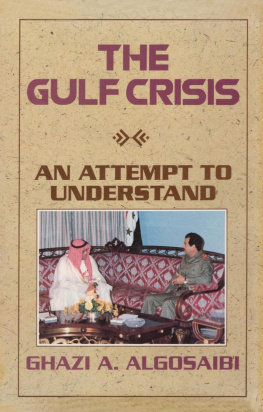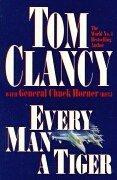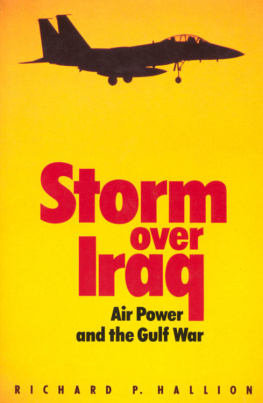Johnson Robert - A Short History of the First Gulf War
Here you can read online Johnson Robert - A Short History of the First Gulf War full text of the book (entire story) in english for free. Download pdf and epub, get meaning, cover and reviews about this ebook. City: London, year: 2011, publisher: Creative Content Ltd, genre: Science. Description of the work, (preface) as well as reviews are available. Best literature library LitArk.com created for fans of good reading and offers a wide selection of genres:
Romance novel
Science fiction
Adventure
Detective
Science
History
Home and family
Prose
Art
Politics
Computer
Non-fiction
Religion
Business
Children
Humor
Choose a favorite category and find really read worthwhile books. Enjoy immersion in the world of imagination, feel the emotions of the characters or learn something new for yourself, make an fascinating discovery.
- Book:A Short History of the First Gulf War
- Author:
- Publisher:Creative Content Ltd
- Genre:
- Year:2011
- City:London
- Rating:4 / 5
- Favourites:Add to favourites
- Your mark:
- 80
- 1
- 2
- 3
- 4
- 5
A Short History of the First Gulf War: summary, description and annotation
We offer to read an annotation, description, summary or preface (depends on what the author of the book "A Short History of the First Gulf War" wrote himself). If you haven't found the necessary information about the book — write in the comments, we will try to find it.
A Short History of the First Gulf War — read online for free the complete book (whole text) full work
Below is the text of the book, divided by pages. System saving the place of the last page read, allows you to conveniently read the book "A Short History of the First Gulf War" online for free, without having to search again every time where you left off. Put a bookmark, and you can go to the page where you finished reading at any time.
Font size:
Interval:
Bookmark:
Written by Dr Rob Johnson, Oxford University
THE LOWDOWN: A SHORT HISTORY OF THE FIRST GULF WAR
First published in 2010
By Creative Content Ltd, Roxburghe House, Roxburghe House, 273-287 Regent Street, London, W1B 2HA.
Copyright 2010 Creative Content Ltd
The moral right of Dr. Rob Johnson to be identified as the author of this work has been asserted by him in accordance with the Copyright, Designs and Patents Act, 1988.
All rights reserved. No part of this publication may be reproduced or transmitted in any form by any means, electronic or mechanical, including photocopying, recording or any information storage and retrieval system, without prior permission in writing from the publisher nor be otherwise circulated in any form or binding or cover other than that in which it is published.
In view of the possibility of human error by the authors, editors or publishers of the material contained herein, neither Creative Content Ltd. nor any other party involved in the preparation of this material warrants that the information contained herein is in every respect accurate or complete and they are not responsible for any errors or omissions, or for the results obtained from the use of such material. The views expressed in this publication are those of the author and do not necessarily reflect the opinion or policy of Creative Content Ltd. or any employing organization unless specifically stated
Typesetting by CPI Rowe
Cover Design by Daniel at HCT Design
ISBN 978-1-906790-45-5
www.creativecontentdigital.com
TABLE OF CONTENTS
Introduction
In 2003, the capital of Iraq was bombarded with overwhelming force - and spokesmen of the American-led Coalition described the onslaught as a new strategy of shock and awe. Enormous explosions reverberated around the city and great concrete structures were torn apart. Within days, coalition ground troops drove up through Iraq from the borders of Kuwait, supported by attacks on the southern coast and in the Kurdish-populated north. South of Baghdad, elements of the Republican Guard, the elite forces of the Iraqi regime, tried to hold the Western forces back, but they were destroyed by airstrikes and finished off by heavily armoured tanks. There were token acts of guerrilla-style resistance, the shape of things to come in the following years, but the Coalition forces were relentless and the Iraqi army was overwhelmed everywhere. In a matter of days, Iraq had been defeated.
The justifications of the Iraq War of 2003 remain controversial, but the British and American governments insisted that Saddam Hussein, the Iraqi leader, was a threat to the Middle East. They stated that if it was true that he possessed Weapons of Mass Destruction - an arsenal of nuclear warheads, and lethal chemical and biological agents then he had the capability and the motivation to inflict millions of casualties against the West or to control the oil resources in the region and thus destroy the economies of the world.
What made these accusations believable was Saddams track record. His regime was a punitive and brutal one, which governed by terror and intimidation. He had been responsible for the use of chemical warfare against unprotected civilians in his own country and thousands had perished. Thousands more Iraqis were missing, murdered by the regime in a dirty war to maintain its grip on power. Saddam had also twice invaded neighbouring states in blatant acts of aggression. Iran had been attacked in 1980 and, following a ten year war, Saddam then turned against Kuwait. Despite United Nations sanctions and periodic military action against Iraq, Saddam remained defiant and unpredictable.
This seemed all the more remarkable when one reflects that in 1990-91 the world had formed a coalition against Iraq and defeated its armies decisively. In 2003, many speculated about what had gone wrong in that first Gulf War. Why had Saddam been able to survive? What was it that drove him to continue to snub the world and pursue his objectives so aggressively?
In The Lowdown: A Short History of the First Gulf War, I would like to give you an explanation of the causes of the Gulf War in 1990-91, focussing on the decision-making in the region by local and international actors and in particular offering some clarification of how the Iran-Iraq War of the 1980s shaped the political and diplomatic landscape which led to a confrontation between President Saddam Hussein of Iraq and that world coalition led by the United States.
At the end of the Iran-Iraq War in 1988, Saddam Hussein believed he had achieved a significant military victory. He possessed the largest army of the region and therefore the means to take further his regional ambitions. But he was also acutely aware that his rule was based on shaky foundations. Tens of thousands had been killed and there were many more disabled in a conflict many had bitterly dubbed Saddams war. Iraq was in significant debt and he could not demobilise his army lest it flood the labour market with unemployed and disaffected young men. Iraqis had made great sacrifices and the public expected a considerable peace dividend. Seeking compensation for defending the interests of other Arab states, Saddam therefore pinned his hopes on a rapid injection of wealth to rejuvenate the economy, restart development projects and purchase loyalty to the regime. He coveted Kuwaits vast oil revenues, and considered using his vast and seasoned army to get them, putting him on a collision course with the West. Yet his military success in the war against Iran and tacit American backing he had enjoyed in the 1980s convinced Saddam that he could continue to act unilaterally. He calculated there would be little actual resistance to the invasion of Kuwait beyond some noisy protests. However, the West, emerging confidently from the Cold War, believed that its values of democracy, the promotion of human rights and the punishing of belligerence by any dictator, could now be applied to the world - and there was a new determination to defeat aggressors like Saddam.
Saddam was about to make a dreadful miscalculation. When Iraqi forces poured into Kuwait, much of the world united against him. The First Gulf War opened a new chapter in the regions politics, bringing together the Arab states and the Western world. It gave rise to a new optimism about international relations and the settlement of disputes through collective action. It proved to be the ultimate demonstration of twentieth century conventional war and seemed to indicate that the West, particularly the United States, would dominate the coming decades. Yet, ultimately, it was a war that convinced Saddam to continue his defiance of the West and to exercise even greater ruthlessness to stay in power - a situation which led to the Coalition invasion of Iraq in 2003. This title, therefore, revisits the Gulf War in light of these more recent events.
Part 1: The Invasion of Kuwait
At 2:00 am on the 2nd of August 1990, three Iraqi armoured divisions consisting of thousands of battle-hardened troops swept across the northern border of Kuwait, while Iraqi Special Forces made amphibious and heli-borne landings against Kuwait city. Loud explosions reverberated around the Emirs palace. By dawn, thick columns of smoke writhed across the urban landscape - but the deserted streets were still echoing to staccato bursts of machine gun fire, or the loud bang of grenades and rockets. All the Government buildings were quickly overrun, but a handful of guards kept up a determined defence of the palace. The Emir, Shaikh Jabir al Ahmad al-Jabir as-Sabah, was bundled into a civilian car and escaped amidst the mass of vehicles trying to get away from the fighting. Eventually the resistance at the palace was overwhelmed and the defiant guards killed or captured- and amongst the dead lay the Emirs own brother, who had been cut down in the gun battle.
Font size:
Interval:
Bookmark:
Similar books «A Short History of the First Gulf War»
Look at similar books to A Short History of the First Gulf War. We have selected literature similar in name and meaning in the hope of providing readers with more options to find new, interesting, not yet read works.
Discussion, reviews of the book A Short History of the First Gulf War and just readers' own opinions. Leave your comments, write what you think about the work, its meaning or the main characters. Specify what exactly you liked and what you didn't like, and why you think so.










